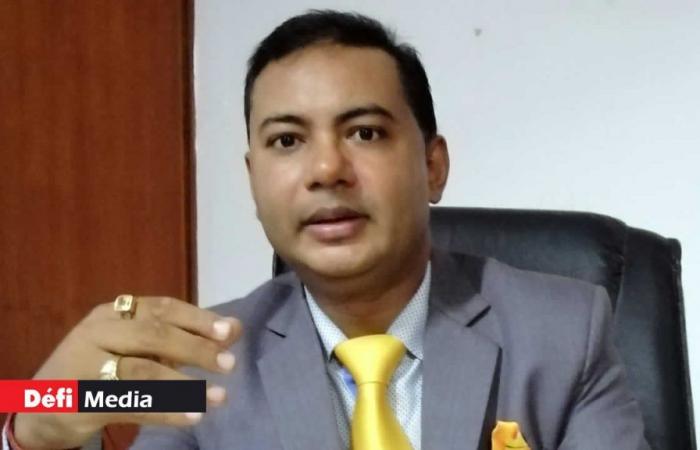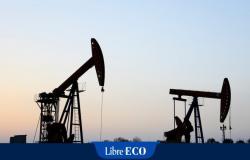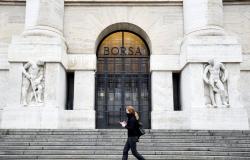As the elections approach, Bhavish Jugurnath analyzes the state of the Mauritian economy. The economist highlights the issues linked to inflation, price regulation and the impact of political uncertainties on growth. For him, political parties must prioritize measures to stabilize prices.
How do you assess the state of the Mauritian economy as the elections approach?
The Mauritian economy recovered strongly after the impact of the pandemic, thanks to fiscal measures and “absorbers” put in place against external shocks prior to the pandemic. Growth in real Gross Domestic Product (GDP) reached 8.9% in 2022, supported by the recovery of tourism and the manufacturing industry. In 2023, growth remained at 6.9%, with production now having exceeded its pre-pandemic level. The dynamism of tourism, the construction of social housing, as well as the solid performance of the transport and financial services sectors have stimulated this growth. Growth prospects remain favorable: in 2024, real GDP is expected to grow by 4.9%, driven by construction and the return of tourism to high pre-pandemic levels. Headline inflation is expected to fall to 4.9% on average in 2024, mainly driven by international dynamics in oil and food prices. An influx of 1.3 million tourists could also boost growth this year. However, a major concern remains the public debt, which reaches 78.6% of GDP and exceeds the Rs 500 billion mark. Fiscal policy for the 2023-2024 financial year is expected to be expansionary, with a primary budget deficit forecast at 2.9% of GDP. It is crucial to implement a medium-term fiscal consolidation plan to reduce public debt and rebuild fiscal reserves, mobilizing additional revenues and reducing current spending, while protecting the most vulnerable.
What are the economic priorities that political parties should address during this campaign?
A recalibration of macroeconomic policies is needed to help rebuild fiscal reserves. Rising prices for essential goods can significantly affect the daily lives of citizens, particularly those with modest incomes. Inflation, currently around 6%, affects everyone, but it hits lower-income households hardest, who spend a larger share of their budgets on essential goods. For people living on fixed incomes, such as recipients of social or disability benefits, these price increases represent a challenge. From a macroeconomic perspective, if these price increases persist, they could fuel inflationary pressures, which would be detrimental to the economy and the population. Therefore, the main priority of political parties should be the reduction of the cost of living and the stability of prices of basic necessities.
Political uncertainties around elections may temporarily slow economic growth.
Precisely, the rise in prices of essential goods has been a major concern for the population. How can the different parties’ proposals to reduce the cost of living influence long-term economic stability?
The exchange rate of the dollar against the rupee, which averaged Rs 44.50 between September and December 2023, increased to Rs 45 in January 2024. Since February 2024, it has been Rs 46. The 12 April, the exchange rate reached Rs 46.69. At this rate, we are getting closer to a rate of Rs 50 for December. The depreciation against the dollar is 1.7%, while it amounts to 5.3% against the euro and 4.7% against the pound sterling. Although we expect inflation to decline with the resolution of supply issues and restrictive monetary policies, a possible increase in freight costs, coupled with the depreciation of the rupee, could lead to further rise in prices. Policy measures will likely be needed to curb these increases. Rising prices for essential goods disproportionately affect low-income households, highlighting the importance of policies to control inflation while protecting the most vulnerable. The government has a crucial role to play in stabilizing the prices of basic necessities, notably through strategic policies and appropriate supply management. Political parties must include in their programs measures aimed at regulating prices and intervening in the market to guarantee this stability.
What are the economic challenges that the next government will have to face?
Following the devastating and lasting consequences of the COVID-19 pandemic, the next government must rely on a framework based on resilience, inclusiveness and the creation of opportunities. This will involve reviewing the country’s industrial fabric to make existing industries less vulnerable to economic shocks, while favoring sectors with high growth potential. A “reindustrialization” process would improve competitive advantages and direct new industrial policies towards innovation and investment in human capital by 2025-2030. Current growth paradigms, such as the knowledge economy, the digital economy and the Fourth Industrial Revolution (4IR), will have to be integrated into this reflection, particularly in terms of job loss, wage stagnation, training workers and low levels of competitiveness. Our dependence on the tourism sector remains strong, while our main European markets are severely affected by the war in Ukraine. To drive growth, it is crucial to rethink our economic strategy to attract more foreign direct investment in promising sectors like Fintech, the Metaverse, smart agriculture, medical tourism and a reinvented offshore sector. If we do not meet the tourist arrivals targets, it will be difficult to achieve 6% growth.
What can we expect between now and the end of the year, marked by the general elections, in terms of growth?
The electoral process, including campaigning and voting, may cause minor economic disruptions, but these effects are generally temporary. The government tends to increase spending before elections to build support, which may lead to a spike in economic activity in the short term, but at the risk of worsening public debt in the long term. These expenditures often relate to infrastructure projects or social programs. The pre-election and post-election period is often marked by some political uncertainty, which can cause investors to delay their decisions, temporarily slowing economic growth. Given that the campaign will only last a few weeks, I expect GDP growth by the end of the year to be between 4% and 4.5%.






